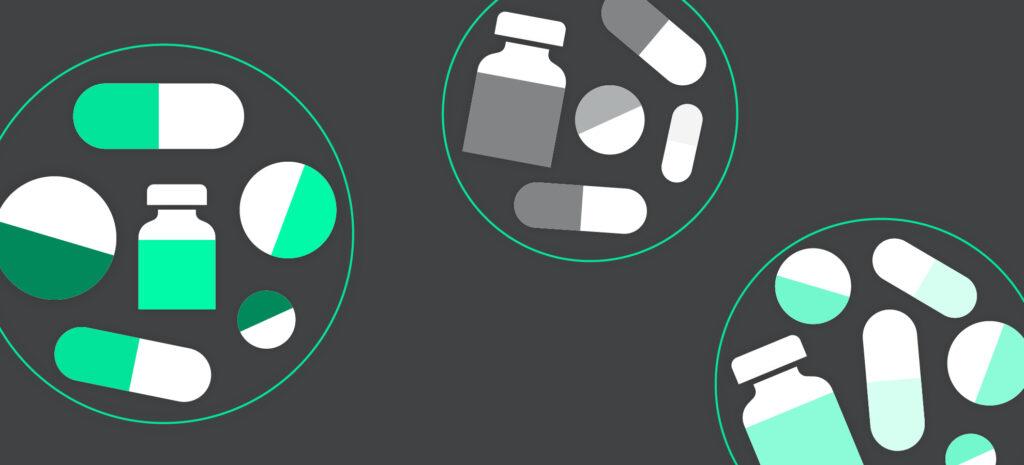The healthcare space is constantly evolving, and as that happens, treatment options are bound to change as well. Medical professionals always strive to leverage the latest knowledge and tools to improve their efforts. Now, modern advancements have made it possible to make progress faster than ever before. Precision medicine is one of the approaches growing in popularity and supporting the goal of treating conditions more effectively. This trend benefits both those who work in the industry and patients. In this post, we’ll explore what it is, why it’s important, how it’s used, and how technology plays a role in the concept.
What is precision medicine?
This emerging approach impacts healthcare by supporting a shift from general disease treatment. Based on individual differences in genes, environment, and lifestyle, precision medicine uses the information to target medical treatments to a patient’s specific needs. Some examples of precision medicine include targeted therapy, genomic medicine, genetic testing, gene therapy, and molecular profiling.
This contrasts with how treatments have historically been developed for the masses. Precision medicine requires accessing and analyzing patient data, typically with the support of modern technology. It’s often referred to as personalized medicine. Still, that term can be a misnomer – the difference between precision medicine vs personalized medicine is that while precision therapies are targeted, they are not tailored to each individual who receives them.
Why is precision medicine important?
The importance of precision medicine lies in the possibility of achieving a higher quality of life for patients. Because it historically hasn’t been possible to develop treatments based on specific needs, even broadly proven treatments didn’t lead to the expected outcome for all patients. This approach can lead to more targeted treatment and improved outcomes by considering variability in genes, environment, and lifestyle.
Precision medicine allows medical professionals to determine better which treatment and prevention strategies for a particular disease will work on a broader selection of patients. This will also improve the patient experience by treating patients more as individuals. And while the focus is on better health care, precision medicine has also led to the discovery of new cancer cells, rare diseases, genetic changes, and mutations.
In the pharmaceutical industry
Over the past several years, research and development efficiency in the pharmaceutical space has declined. This, combined with ongoing shifts in focus and investments, exerts pressure on people and companies in the medical space. While keeping up is critical to success, pharma companies must also know how care delivery is changing.
Patients expect more personalization in their treatment plans. This is a natural extension of increased personalization in other consumer habits. This personalization can start as early as the drug research and development phase, and precision medicine makes it easier to meet those demands.
Pharmaceutical companies are starting to use precision medicine to develop more targeted drugs, especially for rare diseases. This can help some patients avoid trying treatments that don’t work. Drug developers are also focusing more on precision oncology treatments that may be effective against specific types of cancer. Targeted or molecularly targeted therapy is a significant treatment modality for cancer.
In healthcare settings
Precision medicine can help identify people at risk of developing diseases in healthcare settings. While some conditions may come about for patients because of their environment or confident lifestyle choices, that isn’t always the case. They may be genetically inherited predispositions to certain diseases. Catching this early can be the key to preventing potential adverse health outcomes.
It can also identify people who may not be responding to treatment. Traditionally, many treatments offer a one-size-fits-all approach that isn’t ideal for everyone. Precision medicine can help people treat their conditions more effectively and faster than ever before because it can take their specific circumstances into account.
Understanding the role of technology in precision medicine
This emerging field combines technological advances with the latest in medical research to deliver tailored treatments for patients. Here are some examples of health technology that supports precision medicine:
- Genetic testing provides insight into individual genetic makeup and how this may impact treatment. This is particularly important in helping to develop treatments and choosing the best possible option for a patient.
- Biomarkers measure specific biological processes and levels to inform how well a treatment works. This way, healthcare teams can make adjustments that may improve outcomes.
- Artificial intelligence can aid in analyzing patient datasets quickly and efficiently across various diagnoses or conditions and help professionals easily identify patterns.
- Insights management helps organize and contextualize insights for better and faster decision-making. This can be invaluable in an era with a high volume of information.
An insights management platform includes AI tools and can be instrumental in extracting valuable information from unstructured data like physician notes, referrals, and charts. As technology continues to evolve and advance, so will precision medicine. This is just the beginning of seeing how the concept fits in the healthcare landscape.
Bottom line: connecting technology, insights, and treatment
The impact of precision medicine will be far-reaching to improve patient treatment and efficiency for those working in the healthcare space. Embracing this as part of the system is just the beginning of new possibilities with the industry’s ongoing move to a modern and digital landscape.
Want to know more about the future of the life sciences industry and how you can leverage technology to transform insight gathering? Read Within3 in Pharmaphorum’s Deep Dive: Oncology next.







